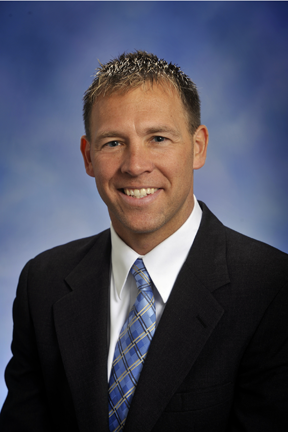Legislator: Taxpayers get bad deal from universities
State Rep. Bob Genetski doesn’t have many fans at Michigan’s public universities. As chairman of the House Appropriations Subcommittee on Higher Education, Genetski, R-Saugatuck, has been an outspoken critic of how universities spend money -- and a leader in the movement to reform the state’s higher education funding formula. A Bridge analysis found that Michigan families pay more to attend the state’s public universities than families in most other states pay to attend their public universities. Genetski, who holds a master’s degree in education from Grand Valley State University, spoke to Bridge Magazine about college costs, and what can be done about them.
Bridge: Michigan’s public universities have higher average net costs per student than public universities in most other states. Why is that?
A: Part of the reason is our budget challenges. If you look at the 10-year trend, we’ve cut funding to the higher ed by about 31 percent; during the same time period, tuition and fees rose by 110 percent.
Bridge: What is the impact on the state of those higher costs?
A: It takes an awful lot of the money out of the private sector and throws it into the public sector. In addition, it continues to keep money out of the private sector because we have kids who graduate with $24,000 in debt. Instead of buying cars or buying homes, they’re paying student loans.
Bridge: It costs half as much for a North Carolina family to send a child to UNC as it takes for a Michigan family to send a child to U-M. Does that mean that North Carolina values higher education more than Michigan?
A: What strikes me is, North Carolina (is) not as friendly to labor. I’ve been told professor salaries are … within a similar range. But I don’t know what their support staff makes there compared to here.
Bridge: Has Michigan made a conscious policy choice to have college paid for by individual families, as opposed to by the state?
A: We’re not saying we don’t care about higher education. But we’re coming out of the worst recession in the state’s history. There are only so many places we can cut, and higher ed happens to be one of those.
It happens also to be one where, as soon as you cut it, (universities) can turn around and, instead of looking inward for legitimate cuts, increase tuition. They should be looking inward first, second and third -- and only then taking a hard look at tuition.
Bridge: Universities say the current system, with decreasing state funding and increasing student costs, is unsustainable. Do you disagree?
A: Taxpayers can’t keep funding the system as it operates now. We’ve got at least four of those major universities with a six-year completion rate below 40 percent. Meanwhile, we have some jobs that can’t be filled because they can’t find the graduates. Do we need 14 colleges of education (among the state’s 15 public universities), turning out teachers when the economy isn’t asking for teachers?
When you talk to Joe Taxpayer, there’s sympathy for students, but not much sympathy for universities. They go on any college campus and they always see building cranes and top-of-the-line stuff. Parents tell me universities don’t make a strong effort to make cuts. Taxpayers deserve better.
Bridge: It sounds as if you would cut university funding even more if it were your choice?
A: Everyone would like to raise funding, but there are changes that need to be made. If you look at the governor’s message on talent and education, he spoke a lot about the need for more (Science, technology, engineering and math) majors, as well as health care. We need to fund legitimate programs. We can’t keep turning out students trying out Polish-American studies.
See what new members are saying about why they donated to Bridge Michigan:
- “In order for this information to be accurate and unbiased it must be underwritten by its readers, not by special interests.” - Larry S.
- “Not many other media sources report on the topics Bridge does.” - Susan B.
- “Your journalism is outstanding and rare these days.” - Mark S.
If you want to ensure the future of nonpartisan, nonprofit Michigan journalism, please become a member today. You, too, will be asked why you donated and maybe we'll feature your quote next time!


